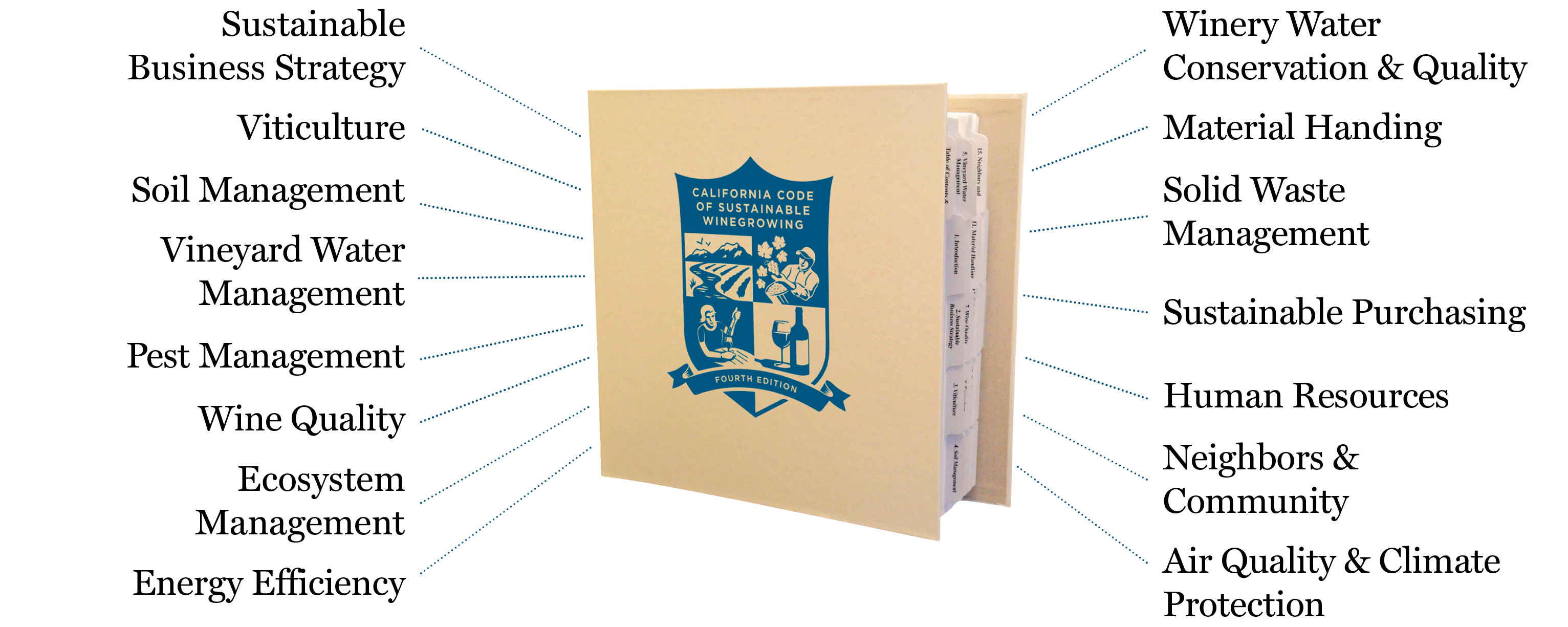Certification Requirements
Certified wineries and vineyards must meet the following requirements each year, verified during an annual independent third-party audit:
✔ Evaluate Practices Annually:
Wineries and vineyards start with an annual assessment of 151 vineyard and 113 winery best practices using the comprehensive California Code of Sustainable Winegrowing. The Code includes 16 chapters and a built-in system with metrics to measure performance.

Auditors verify that all self-assessment scores (Category 1‐4) accurately reflect on-the-ground practices during the annual audit. Practices included in Category 1 meet existing regulation, where relevant, with practices increasing in sustainability from Category 1 to 4.
✔ Implement Required Practices:
There are 63 prerequisite practices for vineyards, and 43 prerequisite practices for wineries. (While prerequisites specify minimal scores, certified vineyards and wineries often score above these minimum practices.) For a list of required practices, see our Prerequisites List - 4th Edition.
✔ Exceed Overall Score Threshold:
To ensure general fulfillment of all sustainable practices addressed by the Code, 85% of the total scores must be Category 2 or higher by Year Two of certification. Practices included in Category 2 and above are considered sustainable practices in the industry.
✔ Responsibly Manage Vineyard Pests and Disease:
Certified vineyards must have a robust Integrated Pest Management (IPM) approach that minimizes risks to people and the environment. They must also comply with prohibitions or restrictions on crop protection materials that are “restricted” by the California Department of Pesticide Regulation and/or the US Environmental Protection Agency.*
✔ “Measure to Manage” Water, Energy, Nitrogen and Greenhouse Gases:
Vineyards must measure and record water use and nitrogen applied annually by Year Two of certification. Wineries must measure and record water use, energy use, and greenhouse gas emissions annually by Year Two of certification.
✔ Continuously Improve:
All certified vineyards and wineries must also demonstrate on-going improvement in the adoption of sustainable practices on an annual basis. Written action plans that address priority areas are created, executed and audited to document the implementation of additional sustainable practices each year.
✔ Verify Certified Sustainable Wine:
Wine bearing the certification logo or claims must be made in a certified winery, using at least 85% or higher grapes from certified vineyards and 100% California grapes. A winery that uses a certification claim or logo on a wine label is required to complete a Chain of Custody audit to ensure it meets program standards.
*All of these requirements are in addition to the rigorous regulatory environment in California that determines the materials that may be used in winegrape cultivation, who can apply them and what training/licensing they must have. California is also the only state and wine region to require mandatory reporting of all pesticide use to ensure adherence to strict regulations.